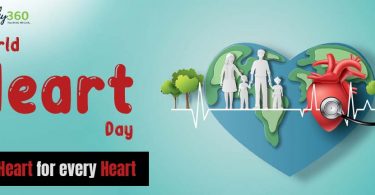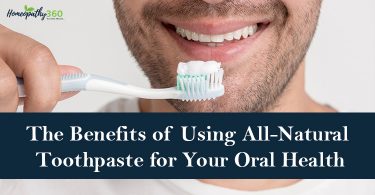Author:
Compiled by Dr Pulkit Gupta (BHMS, PGNAHI)
COVID-19 is a strain of corona virus that was first found in humans in Wuhan, China 2019. It is newly spread infectious illness that causes mild to moderate respiratory illness leading to severe complications like pneumonia and lung collapse.
How Corona virus spread?
The COVID-19 virus spreads primarily through droplets of saliva or discharge from the nose when an infected person coughs or sneezes, so it’s important that you also practice respiratory etiquette (for example, by coughing into a flexed elbow).
How to prevent the spread of Corona virus?
- Wash your hands frequently
Regularly and thoroughly clean your hands with an alcohol-based hand rub or wash them with soap and water.
Why?
Washing your hands with soap and water or using alcohol-based hand rub kills viruses that may be on your hands.
- Maintain social distancing
Maintain at least 1 metre (3 feet) distance between yourself and anyone who is coughing or sneezing.
Why?
When someone coughs or sneezes they spray small liquid droplets from their nose or mouth which may contain virus. If you are too close, you can breathe in the droplets, including the COVID-19 virus if the person coughing has the disease.
- Avoid touching eyes, nose and mouth
Why?
Hands touch many surfaces and can pick up viruses. Once contaminated, hands can transfer the virus to your eyes, nose or mouth. From there, the virus can enter your body and can make you sick.
- Practice respiratory hygiene
Make sure you, and the people around you, follow good respiratory hygiene. This means covering your mouth and nose with your bent elbow or tissue when you cough or sneeze. Then dispose of the used tissue immediately.
Why?
Droplets spread virus. By following good respiratory hygiene you protect the people around you from viruses such as cold, flu and COVID-19.
- If you have fever, cough and difficulty breathing, seek medical care early
Stay home if you feel unwell. If you have a fever, cough and difficulty breathing, seek medical attention and call in advance. Follow the directions of your local health authority.
Why?
National and local authorities will have the most up to date information on the situation in your area. Calling in advance will allow your health care provider to quickly direct you to the right health facility. This will also protect you and help prevent spread of viruses and other infections.
- Stay informed and follow advice given by your healthcare provider
Stay informed on the latest developments about COVID-19. Follow advice given by your healthcare provider, your national and local public health authority or your employer on how to protect yourself and others from COVID-19.
Why?
National and local authorities will have the most up to date information on whether COVID-19 is spreading in your area. They are best placed to advise on what people in your area should be doing to protect themselves.
Questions and answers about Corona Virus
1. How should I greet another person to avoid catching the new virus ?
Ans. To prevent COVID-19 it is safest to avoid physical contact when greeting. Safe greetings include a wave, a nod or a bow.
2. Should I avoid shaking hands because of the new corona virus?
Ans. Yes. Respiratory illness can be spread by shaking hands. Instead of shaking hands do safe greeting.
3. Is wearing rubber gloves while out in public effective in preventing the corona virus infection ?
Ans.No.Regularly washing your bare hands offers more protective against catching COVID-19 than wearing rubber gloves.
You can still pick up COVID-10 contamination on rubber gloves. If you then touch your face the contamination goes from your glove to your face and can infect you.
4. I am pregnant how can I protect myself from COVID-19?
Ans. Wash your hands frequently, Avoid touching eyes , nose, mouth, Put space between yourself and others .
5. Before, during and after childbirth all women have the right to high quality care. This includes.
Ans. Antenatal – postpartum, Newborn, Postnatal, Mental health
6. All the women have the right to a safe and a positive childbirth experience, whether or not they have a COVID-19 infection?
Ans. Respect and dignity, a companion of choice, clear communication by maternity staff, pain relief strategies, mobility in labour where possible and birth position of choice.
7. Close contact and early, exclusive breastfeeding helps a baby to thrive.
Ans. A woman with COVID-19 should be supported to breastfeed safely, hold her newborn skin to skin and share a room with her baby.
8. Women with covid-19 can breastfeed if they wish to do so. They should:
Ans. Practice a respiratory hygiene and wear a mask. Wash hands before and after touching the baby. Routinely clean and disinfect surfaces.
9. Can CoVID-19 be caught from a person who has no symptoms?
Ans.The main way the disease spreads is through respiratory droplets expelled by someone who is coughing. The risk of catching COVID-19 from someone with no symptoms at all is very low. However, many people with COVID-19 experience only mild symptoms. This is particularly true at the early stages of the disease. It is therefore possible to catch COVID-19 from someone who has, for example, just a mild cough and does not feel ill. WHO is assessing ongoing research on the period of transmission of COVID-19 and will continue to share updated findings.
10. Can the virus that causes COVID-19 be transmitted through the air?
Ans.Studies to date suggests that the virus that causes COVID-19 is mainly transmitted through contact with respiratory droplets rather than through the air.
11. Can I catch COVID-19 from the feces of someone with the disease?
Ans.The risk of catching COVID-19 from the feces of an infected person appears to be low. While initial investigations suggest the virus may be present in feces in some cases, spread through this route is not a main feature of the outbreak. WHO is assessing ongoing research on the ways COVID-19 is spread and will continue to share new findings? Because this is a risk, however, it is another reason to clean hands regularly, after using the bathroom and before eating.
12. Is there a vaccine, drug or treatment for COVID-19?
Ans.Not yet. To date, there is no vaccine and no specific antiviral medicine to prevent or treat COVID-2019. However, those affected should receive care to relieve symptoms. People with serious illness should be hospitalized. Most patients recover thanks to supportive care.
Possible vaccines and some specific drug treatments are under investigation. They are being tested through clinical trials. WHO is coordinating efforts to develop vaccines and medicines to prevent and treat COVID-19?
The most effective ways to protect yourself and others against COVID-19 are to frequently clean your hands, cover your cough with the bend of elbow or tissue, and maintain a distance of at least 1 meter (3 feet) from people who are coughing or sneezing.
13. Is COVID-19 the same as SARS?
Ans. No. The virus that causes COVID-19 and the one that caused the outbreak of Severe Acute Respiratory Syndrome (SARS) in 2003 are related to each other genetically, but the diseases they cause are quite different.
SARS was more deadly but much less infectious than COVID-19. There have been no outbreaks of SARS anywhere in the world since 2003.
14. Are antibiotics effective in preventing or treating the COVID-19?
Ans. No. Antibiotics do not work against viruses; they only work on bacterial infections. COVID-19 is caused by a virus, so antibiotics do not work. Antibiotics should not be used as a means of prevention or treatment of COVID-19. They should only be used as directed by a physician to treat a bacterial infection.
15. Are there any medicines or therapies that can prevent or cure COVID-19?
Ans.While some western, traditional or home remedies may provide comfort and alleviate symptoms of COVID-19, there is no evidence that current medicine can prevent or cure the disease. WHO does not recommend self-medication with any medicines, including antibiotics, as a prevention or cure for COVID-19. However, there are several ongoing clinical trials that include both western and traditional medicines. WHO will continue to provide updated information as soon as clinical findings are available?
16.How long is the incubation period for COVID-19?
Ans.The “incubation period” means the time between catching the virus and beginning to have symptoms of the disease. Most estimates of the incubation period for COVID-19 range from 1-14 days, most commonly around five days. These estimates will be updated as more data become available.
17.Can humans become infected with the COVID-19 from an animal source?
Ans.Coronaviruses are a large family of viruses that are common in animals. Occasionally, people get infected with these viruses which may then spread to other people. For example, SARS-CoV was associated with civet cats and MERS-CoV is transmitted by dromedary camels. Possible animal sources of COVID-19 have not yet been confirmed.
To protect yourself, such as when visiting live animal markets, avoid direct contact with animals and surfaces in contact with animals. Ensure good food safety practices at all times. Handle raw meat, milk or animal organs with care to avoid contamination of uncooked foods and avoid consuming raw or undercooked animal products.
18. Can I catch COVID-19 from my pet?
Ans.While there has been one instance of a dog being infected in Hong Kong, to date, there is no evidence that a dog, cat or any pet can transmit COVID-19. COVID-19 is mainly spread through droplets produced when an infected person coughs, sneezes, or speaks. To protect yourself, clean your hands frequently and thoroughly.
19. How long does the virus survive on surfaces?
Ans.It is not certain how long the virus that causes COVID-19 survives on surfaces, but it seems to behave like other coronaviruses. Studies suggest that corona viruses (including preliminary information on the COVID-19 virus) may persist on surfaces for a few hours or up to several days. This may vary under different conditions (e.g. type of surface, temperature or humidity of the environment).
If you think a surface may be infected, clean it with simple disinfectant to kill the virus and protect yourself and others. Clean your hands with an alcohol-based hand rub or wash them with soap and water. Avoid touching your eyes, mouth, or nose.
20. Is it safe to receive a package from any area where COVID-19 has been reported?
Ans.Yes. the likelihood of an infected person contaminating commercial goods is low and the risk of catching the virus that causes COVID-19 from a package that has been moved, travelled, and exposed to different conditions and temperature is also low.
As per the WHO guidelines regarding COVID-19 all the information is correct and properly validated.





